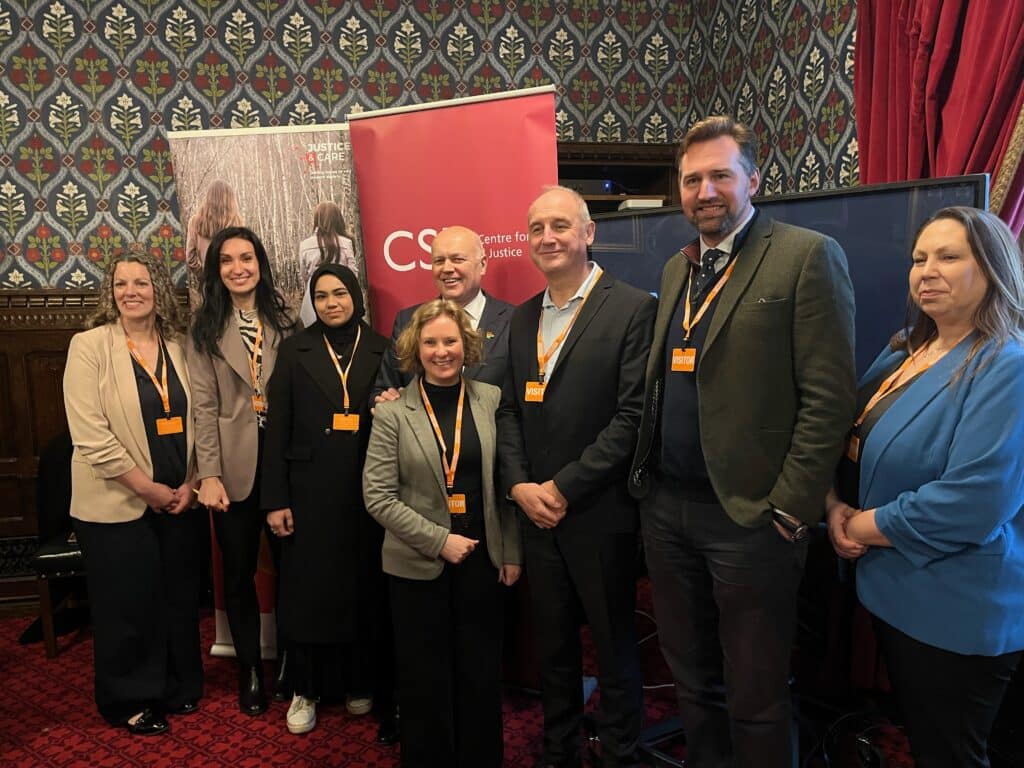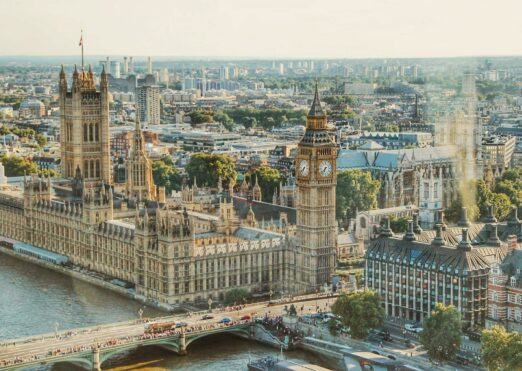Justice and Care’s new report on forced labour spotlighted in Parliament
January 10, 2025
Justice and Care and the Centre for Social Justice’s new report on forced labour in the UK was discussed at a crucial event in Parliament this week.
The event brought together experts, politicians and charities to listen to findings from ‘At what cost? Exploring the impact of forced labour in the UK’.
It was hosted by former Tory leader Sir Iain Duncan Smith and Deputy Leader of Welsh Labour, Carolyn Harris and welcomed attendees including Lord John Randall and John McDonnell MP.
It comes after our research with the CSJ revealed that forced labour is the second most common form of modern slavery embedded in the UK and an issue that is intricately woven into our mainstream economy – with criminals exploiting systematic weaknesses to infiltrate or camouflage themselves as legitimate businesses.
Experts at the event considered how to drive meaningful change, with sufficient tools being implemented for the Labour Government’s proposed Fair Work Agency, a review into exploitation in adult social care and licensing for car washes all seen as urgent actions.
The panel included Sir Iain Duncan Smith, co-founder of the CSJ; Louise Gore, Senior Manager at the Jericho Foundation; David Camp, CEO of the Association of Labour Providers, and Elysia McCaffrey, CEO of the Gangmasters and Labour Abuse Authority (GLAA).

Mr Camp told the event that the Fair Worker agency needs ‘real teeth’, stressing the need for an abundance of inspectors with powers to name exploitative businesses and apply substantial penalties proportionate to the crime.
Meanwhile, the GLAA’s CEO stressed there had been more than 400% increase in exploitation in reports of exploitation in the care sector.
‘Without awareness raising and events like this, people won’t know and they don’t know what’s right in front of them’, she said. ‘They will continue to say, “that’s such a bargain for a car wash, or that’s a real bargain pair of shoes”, or whatever it is. In the hierarchy of needs, most of the people in the country are looking to get something that’s affordable, without thinking of the human cost.
‘At the moment, the way the system works, the responsibility is on the worker and on the vulnerable person to know how to get help in a landscape that’s very difficult and that’s really wrong. The responsibility should be on governments, on those of us that exist to protect and support other people.’
Panel members also emphasised that the business transparency sections of the UK’s Modern Slavery Act, created in 2015, which were once seen as groundbreaking, are now in need of a major overhaul.
Sir Duncan Smith warned: ‘In the US, if companies have in their supply chains provable slave labour, they will be fined significantly and won’t be able to import those goods. We are way behind all of that. Businesses are meant to make a declaration, they all say “we comply” and that’s about it. No one goes in because they don’t have the power to check or to fine.’
The event looked to keep survivors of forced labour and other forms of modern slavery at its heart, with calls made for increased support for victims, including awareness on where to turn to for help if they find themselves trapped in an exploitative situation.
Louise Gleich, who led our new research on forced labour, said: ‘Justice and Care and the Centre for Social Justice were delighted to welcome such a range of experts from across charity, business and law enforcement sectors, as well as parliament, government and policy experts.
‘We had a really insightful and engaged discussion and I think we can all agree that there is a need for much greater action to address forced labour in the UK and some key upcoming opportunities, including the development of the Fair Work Agency.
‘The only way to end modern slavery is by working together. We look forward to continue working in partnership with the organisations at this event and others to fight this awful crime.’
Carolyn Harris said: ‘Forced labour has no place in our society and this report highlights the urgent need for stronger action to protect vulnerable workers in the UK.
‘I am delighted to work with Justice and Care and the Centre for Social Justice to share their crucial findings in Parliament, and am committed to pressing the government to take immediate action on the recommendations.’


